2003 Toyota Avalon Service, Tires & Repairs
Get Started
Complete Auto Care for Your 2003 Toyota Avalon
-
TIRES FOR YOUR 2003 Toyota Avalon View Tire Info GET TIRE PRICING
-
REPAIR FOR YOUR 2003 Toyota Avalon View Repair Info SCHEDULE REPAIR
-
MAINTENANCE FOR YOUR 2003 Toyota Avalon View Maintenance Info SCHEDULE MAINTENANCE
-
OFFERS FOR YOUR 2003 Toyota Avalon Limited Time Tire Offers VIEW ALL COUPONS
2003 Toyota Avalon Tires
Recommended Tires | Tire Information
2003 Toyota Avalon Tires Sizes, Speed Ratings, and Inflation
Not sure about your 2003 Toyota Avalon tire size? Use the following chart to find information on tire size, speed rating, and inflation.
| Trim Level | Speed Rating | Inflation in PSI F/R | Tire Size |
|---|---|---|---|
| 2003 Toyota Avalon XLS* | H | 31 PSI/31 PSI | P205/65R15 |
| 2003 Toyota Avalon XLS* | H | 32 PSI/32 PSI | P205/60R16 |
| 2003 Toyota Avalon XL* | V | 32 PSI/32 PSI | P215/60R16 |
| 2003 Toyota Avalon XL* | H | 31 PSI/31 PSI | P205/60R16 |
| 2003 Toyota Avalon XL* | H | 31 PSI/31 PSI | P205/65R15 |
|
2003 Toyota Avalon XLS* Speed Rating: H Inflation F/R: 31 PSI/31 PSI |
|
2003 Toyota Avalon XLS* Speed Rating: H Inflation F/R: 32 PSI/32 PSI |
|
2003 Toyota Avalon XL* Speed Rating: V Inflation F/R: 32 PSI/32 PSI |
|
2003 Toyota Avalon XL* Speed Rating: H Inflation F/R: 31 PSI/31 PSI |
|
2003 Toyota Avalon XL* Speed Rating: H Inflation F/R: 31 PSI/31 PSI |
* Note: these models have different tire sizes depending on vehicle options.
Recommended Tires for Your 2003 Toyota Avalon
What tires are best for a 2003 Toyota Avalon? Check out the following tire brands and types.
 Blizzak WS90
Blizzak WS90
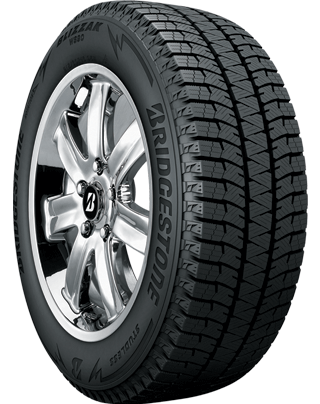
- No warranty
- Winter
- Winter
 Ecopia EP422 Plus
Ecopia EP422 Plus
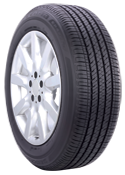
- Platinum Pact Limited Warranty
- All-Season
- Performance
 Turanza QUIETTRACK
Turanza QUIETTRACK
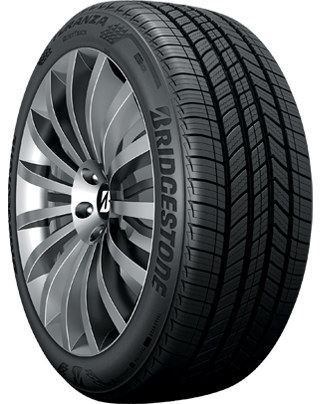
- No warranty
- All-Season
- Performance
 Turanza T005
Turanza T005
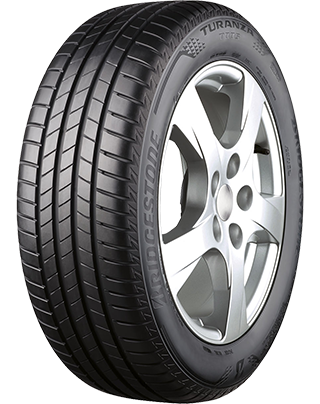
- No warranty
- Summer
- Performance
 WEATHERPEAK
WEATHERPEAK
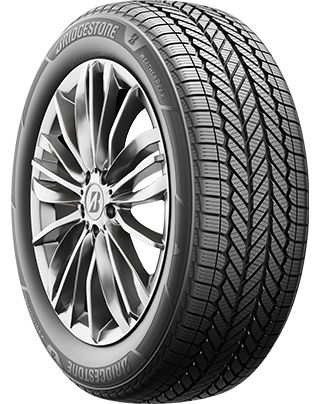
- Platinum Pact Limited Warranty
- All-Season
- Passenger Tires
 WEATHERGRIP
WEATHERGRIP
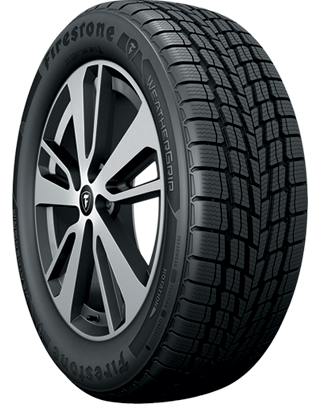
- No warranty
- All-Season
- Passenger Tires
 ALL SEASON
ALL SEASON

- No warranty
- All-Season
- Passenger Tires
 FT140
FT140
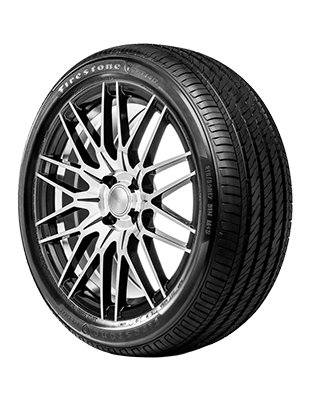
- No warranty
- All-Season
- Passenger Tires
 Winterforce 2
Winterforce 2
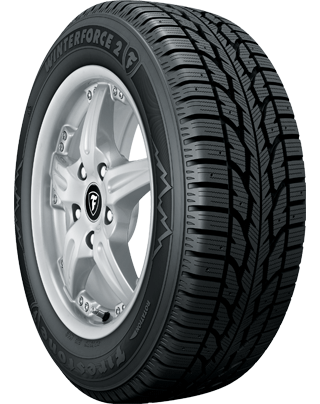
- No warranty
- Winter
- Winter

- No warranty
- All-Season
- Passenger Tires

- No warranty
- All-Season
- Passenger Tires
 Extensa A/S II
Extensa A/S II

- No warranty
- All-Season
- Passenger Tires
About 2003 Toyota Avalon Tires
Apart from finding the right tire size, you also want to consider a handful of other factors when buying new Toyota Avalon tires like how and where you drive, and how much you want to spend. When thinking about your driving conditions, consider where you live (mountains vs. city vs. countryside) and the kind of weather can catch you off-guard. (Watch out Tornado Alley!) It's not uncommon for drivers in states that experience all four seasons to buy more than one set of tires. one set for winter, one set for summer. Other drivers buy one set of all-season tires instead. That way they don't have to return to the tire shop and their vehicle is always ready for sun, rain, and light snow!
Driving style is next on the list to think about when buying tires. If you're an avid off-roader who yearns to pioneer new paths, you have very different tire needs than a highway commuter who doesn't hit the hills very often. Browse Toyota Avalon tires online or come to your nearby Firestone Complete Auto Care for help selecting the tire that's right for you.
Toyota Avalon Installation and More
Firestone Complete Auto Care has been a leading tire provider for more than a century. We're a tire store that also offers professional tire installation, maintenance, and rotation, along with complete auto care. Shop 2003 Toyota Avalon tires online and schedule an installation appointment.
2003 Toyota Avalon Tire Questions
-
Why does Toyota tire inflation matter? Even a tiny decrease in tire pressure could impact your safety and fuel economy. Maintaining proper tire pressure can help increase fuel economy, improve braking time, and boost tire lifespan.
-
What do the numbers on my Toyota Avalon tires mean? Your tire sidewall numbers tell you the recommended load carrying capacity, speed rating, treadwear, traction, and tire size. Talk to a tire technician to learn how to read Toyota tire numbers.
-
Can I check the tread depth on my Toyota tires at home? Stay on top of your tire tread depth to help avoid a dangerous drive. You can check tread depth with a penny. Hold the penny so that Abraham Lincoln is facing you, then place your penny into a tread groove upside down. If you can see the top of Abe’s head, your tread is shallow and it might be time for new Toyota Avalon tires. Grab a penny. Hold the so that Abe Lincon's head is facing you and his hair is pointing toward the ground. Then, place the penny into a tread groove. If you can see the top of Abe’s head, your tread is shallow and it might be time for new Toyota Avalon tires.
Repair Services for Your 2003 Toyota Avalon
When to repair, when to replace? Click on a repair below to learn more about Toyota Avalon repairs at Firestone Complete Auto Care.
2003 Toyota Avalon Repair Information
No driver looks forward to car repairs. We’re here to change that, though. At Firestone Complete Auto Care, we want to make car repair painless and hassle-free. Bring your 2003 Toyota Avalon in for repair services and our technicians will take care of your Avalon like it was their own. Before we begin any repair work, we’ll diagnose any issues and answer your questions about potential repair options. We value your trust, so we recommend only the repairs we think are necessary for your safety on the road.
What Will Toyota Avalon Repairs Cost?
The cost to repair your 2003 Toyota Avalon depends on which repairs are needed, costs of replacement parts or repair supplies, the labor involved, and where you live. We update them regularly to keep our deals fresh!
A few different aspects can influence repair costs for your 2003 Toyota Avalon, like
Questions About 2003 Toyota Avalon Auto Repairs
-
Do I need to follow Toyota's maintenance schedule? One of the best ways to prevent 2003 Toyota Avalon repairs is by staying on top of your Toyota maintenance schedule. This schedule is written by the people who made your vehicle and they know best how to keep it running smoothly.
-
Should I bring my Toyota in even if I can't pinpoint the problem? No, we’re not talking about finding the best jams on the radio! You know your car best, and you’re the first person who will notice if something doesn’t feel right (like new smells, sights, or sounds coming from your car). If you sense that something is 'off,' stop in for a Courtesy Check to have these symptoms checked out ASAP. Early action could help you prevent Toyota Avalon repairs.
-
Why do you recommend certain repairs for my Toyota? Talk to your technician. We'll never recommend a service or repair for your 2003 Toyota Avalon that we don't think is necessary for your safety.
Get Your 2003 Toyota Avalon Brakes Fixed
You might have a strong and reliable engine in your Toyota Avalon. But if you can't stop it, then it's scrap metal. If you’re experiencing squeaky brakes or a loss of braking power, don’t wait! Safe driving is difficult when your brakes are anything but their best. What's more, waiting for things to figure themselves out can result in more damage to your brakes and your wallet. Go to your local Firestone Complete Auto Care for 2003 Toyota Avalon brake repairs. We offer a variety of brake services like brake pad/shoe removal and replacement, brake rotor/drum machining, brake fluid exchange/bleeding, and wheel cylinder and brake caliper installation.
Questions About Your Toyota Avalon Brakes
-
What can cause my Avalon to shake when I apply the brakes? Faulty brake calipers, worn brake pads or rotors, loose or worn suspension parts, and warped rotors can cause your Avalon to shake during braking. If you’re experiencing odd brake behavior, schedule a free brake inspection at a nearby Firestone Complete Auto Care.
-
How often do I need to replace my Avalon brake pads? In general, brake pads can last from 30,000 to 40,000 miles. Certain factors, like driving on highways mostly and braking smoothly, can help your brake pads last longer. Hauling heavy loads and riding your brakes can shorten brake pad lifespan.
-
Is it bad if my Avalon is leaking brake fluid when off? Because your Avalon brake system is a closed hydraulic system, it should not leak brake fluid. However, if components in your brake system have worn out or been damaged, it might cause brake fluid to leak.
When to Get Toyota Avalon Drivetrain Repairs
Drivetrains for front, rear, and all-wheel-drive and 4WD vehicles are quite different, so you don't want to go to just anyone for drivetrain repair. You want to go to Firestone Complete Auto Care. We can help repair all of your 2003 Toyota Avalon drivetrain components Your Avalon might need driveshaft repair if you notice clunks when shifting, vibration as your vehicle accelerates, resistance when turning, or heavy vibrations in your floorboards.
2003 Toyota Avalon Drivetrain Q&A
-
How do I know if my Toyota drivetrain is damaged? Noises toward the back of your Toyota Avalon, leaking fluid, trouble turning — these could all be signs of drivetrain damage you want to address. Take action before something more severe happens.
-
What causes a Avalon’s malfunction indicator light (MIL) to illuminate? The malfunction indicator light — also known as the check engine light — on your Avalon can illuminate for a variety of reasons, including engine issues, electrical problems, damaged sensors, transmission problems, misfires, and faulty connections.
-
Is a drivetrain malfunction in my Avalon serious? If your Avalon has a drivetrain malfunction, don't wait. Get it checked out by a professional mechanic. Identifying the underlying cause and performing the appropriate repairs right away can help prevent further damage and avoid unsafe driving conditions.
Wheel Alignment for 2003 Toyota Avalon
With an alignment service, adjustments are made to your Toyota Avalon’s suspension system, the connection between the vehicle and the wheels. When your car has an alignment service, your tire angles are adjusted according to measurements recommended by Toyota. Why? So that your tires can make contact with the road at the best possible angle. Before we adjust the alignment of your 2003 Toyota Avalon, we’ll start by checking the current alignment angles. If needed, we'll adjust your wheel alignment angles to match Toyota recommendations.
Questions About Toyota Avalon Alignment
-
Are there road conditions that can hurt my Toyota Avalon alignment? Hitting a pothole or curb can alter your wheel alignment. So can general wear and tear over time.
-
How frequently should you get a wheel alignment for your Avalon? Check your Avalon owner's manual for Toyota's recommended interval. It's generally a good idea to check your alignment every 6,000 miles or 6 months, depending on which comes first.
-
Do you need an alignment with new Avalon tires? It’s likely not a requirement to get an alignment when you install new tires on your Avalon, but it's a smart idea to do so anyway. An alignment can help ensure even tire wear, smooth handling, and better fuel efficiency.
Engine Repairs for Your 2003 Toyota Avalon
If your 2003 Toyota Avalon needs engine repair, our expert techs will let you know what needs to be done and why before they get started. We don't start working until we have your approval. If a repair can wait, we'll let you know. If it's necessary for your safety, we'll make sure you understand that, too. We want to give you all the details you need to make an informed decision about your engine repairs. By choosing Firestone Complete Auto Care for Avalon engine repairs and you can feel good knowing that we only use Toyota-compliant replacement parts such as the timing belt, valve guide seal, sensors, or a different component.
Questions About 2003 Toyota Avalon Engines
-
Why does my Avalon’s check engine light come on when I start it? It's okay if your check engine light comes on when you first start your vehicle. This is a sign that your vehicle is testing its circuits. The light should go off shortly. Bring your vehicle in if it doesn't.
-
Why does my Toyota engine sound different? Unusual noises can signal a problem with your Toyota Avalon engine. Tapping or knocking could mean you're low on oil. Whistling could mean a belt is misaligned or there's an intake leak. Squealing can indicate a loose fan belt, and grinding might be coming from the brakes, not the engine.
-
Are you unknowingly damaging your Toyota Avalon engine? Certain driving habits can hurt your engine. These habits include driving on an empty fuel tank, revving your engine while the vehicle is in Park, or slamming the gas pedal while the engine is still cold. Steer clear of these habits to help protect engine performance and efficiency.
Tire Repair for Your 2003 Toyota Avalon
Firestone Complete Auto Care is here for you when your 2003 Toyota Avalon needs flat tire repair or inspection. There’s a chance your tire could be plugged and patched (rather than replaced). Our technicians can inspect your tire and let you know if it is safe to repair. We'll start by evaluating the state of wear, the location of damage, type of damage, and the size of the damage.
If a repair on your 2003 Toyota Avalon tire is feasible and safe, we’ll get to work on the steps to fix it: (1) Remove the tire from the wheel for inspection and repair, (2) fill in the area that’s been punctured to prevent damage from moisture, and (3) re-seal the inside lining of your tire so that air won’t escape.
Frequently Asked Toyota Avalon Tire Repair Questions
-
How soon should I have my flat tire repaired? Driving on a flat or underinflated tire can put extra stress on your wheels and alignment. While it’s sometimes necessary to drive a short distance on a flat tire to get to a safe place, don’t take any other trips in your Avalon until you can have the flat tire repaired or replaced.
-
Can I use an emergency/temporary sealant to fix my Toyota's flat tire? A temporary sealant may be able to help you get to a repair location safely. But temporary or emergency sealants could possibly damage TPMS sensors, and in some cases may even void the warranty on your Bridgestone or Firestone tires. If your tire needs extensive repair, sealant can add time and labor costs to the process.
-
What can cause Avalon tires to keep losing air? Your Avalon tires might keep losing air due to a leaking valve stem, puncture or hole in the tire tread or sidewall, or damaged wheel.
2003 Toyota Avalon Maintenance
Take care of your Toyota Avalon and it'll take care of you. With the right maintenance at the right time, your Avalon has a good chance of hitting 200,000 miles or more.
Guide to 2003 Toyota Avalon Scheduled Maintenance
It can be overwhelming, but fortunately, there’s a resource that takes the guesswork out of routine Avalon maintenance. Rely on the recommended maintenance schedule that’s been created just for your 2003 Toyota Avalon! Toyota knows your vehicle inside and out (they made it, after all!), so they’ve designed this schedule with your car’s unique needs in mind. Scheduled maintenance services can vary depending on driving conditions, climate, and other factors; however, there’s a good chance that your vehicle’s recommended maintenance services will include oil changes, tire rotations, brake pad replacement, filter changes, and fluid checks and exchanges. Staying on track with routine service appointments can help your Avalon perform better, increase your vehicle safety, and prevent common 2003 Toyota Avalon problems.
Learn About Vital Maintenance Needs for Your Toyota Avalon
Come to Firestone Complete Auto Care for manufacturer-recommended routine maintenance on your 2003 Toyota Avalon and our technicians will jump right in with a Courtesy Check. A Courtesy Check helps "set the stage" for your service and catch any small problems before they turn into big repairs. During a Courtesy Check, we’ll always check your battery, then we’ll move on to inspect your Avalon’s head and tail lights, tires, fluid levels, alignment, and windshield wipers.
Firestone Complete Auto Care is your one-stop shop for 2003 Toyota Avalon maintenance and repairs. Don’t wait until something goes wrong with your car. Visit your nearest location for proactive maintenance today.
2003 Toyota Avalon Maintenance Q&A
-
What do I do if I hit a pothole in my Toyota Avalon? Check your car for pothole damage! If you’ve recently hit a pothole (or even if you don’t remember hitting one… they can be sneaky!) check your tire treads, tire sidewalls, and wheels for damage. Potholes can also knock your car out of alignment, so have your alignment checked if you suspect you’ve driven over a rough patch of road lately.
-
When should I switch my Toyota Avalon to high mileage oil? Do you have more than 75,000 miles on your Toyota Avalon? If so, request to switch to high mileage oil at your next oil change. This type of oil is specially formulated to keep aging engine parts in the best possible condition.
-
Why are my Toyota dashboard lights on? It's better to get them addressed as soon as possible. An illuminated dashboard light means something in your vehicle isn't functioning like it should. Letting problems linger can mean bad news for your Toyota Avalon, so be sure to take your car in for service as soon as you notice an illuminated dashboard light.
The Right Battery Size for a 2003 Toyota Avalon
Not sure what battery to get for your Toyota Avalon?
| Battery | Engine | Warranty | Cold Cranking Amps | |
|---|---|---|---|---|
| 35-1 | V6/3.0L | Replacement 24 months | Performance months | 500 |
| 35-2 | V6/3.0L | Replacement 36 months | Performance months | 640 |
| 24F-RP | V6/3.0L | Replacement 48 months | Performance months | 750 |
2003 Toyota Avalon Batteries
On average, auto batteries last anywhere from three to five years. You want to replace your 2003 Toyota Avalon battery before it fails and leaves you stranded. Watch for signs that your current battery is getting too old or too weak. A lagging starter, an illuminated check engine light or battery signal, bloated battery case, corroded battery terminals, or faded headlights can all signal that your battery needs attention.
Or, you can get a complimentary battery check at your nearest Firestone Complete Auto Care. Drop in for a free battery check and, if necessary, a battery replacement to help keep your 2003 Toyota Avalon running! Automotive batteries are just one of our many areas of expertise. Our technicians are well-acquainted with Toyota’s service specs for Avalon car batteries’ reserve capacities and cold cranking amps. Get help choosing the battery size that matches your vehicle, and schedule a weekday or weekend battery replacement service for your car.
Top Toyota AvalonCar Battery Questions
-
Why doesn’t my Toyota Avalon battery stay charged? A battery that won't hold a charge is almost as good as dead. The battery might be old. Or, you may have a habit of leaving your car doors open and the lights on overnight. Stop by for a free battery test at your local Firestone Complete Auto Care to learn more about the state of your battery.
-
How long can I expect my car battery to last? A car battery normally lasts three to five years, but this number can vary based on battery type, your driving habits, and battery maintenance.
-
Why is there white, flaky stuff around my Avalon’s battery post? The white, flaky stuff that can build up around your Avalon’s battery terminals is known as corrosion. Acid leaking from your vehicle’s battery post can have a chemical reaction with the air, leading to an accumulation of the white, powdery substance over time. Corrosion can affect the flow of electricity between your battery and the electrical system in your Avalon, possibly causing issues with electrical performance and starting. If left unaddressed for long enough, it may even cause your battery to prematurely fail.
2003 Toyota Avalon Oil Changes
Toyota recommends changing your 2003 Avalon’s oil at regular intervals. Your Avalon may need an oil change right away if your check engine/oil change light is on, you hear knock knock knock coming from the engine, sense an oil smell in the cabin, or see an excess amount of vehicle exhaust. You might need an oil change more frequently than what’s recommended by Toyota if you regularly haul heavy loads, drive in dusty terrain, adventure off-road, or go long distances at low speeds.
Whether you need high mileage oil, synthetic oil, or conventional oil, you'll find the right 2003 Toyota Avalon motor oil at Firestone Complete Auto Care. Talk with a teammate and consult your owner's manual before picking a motor oil. At Firestone Complete Auto Care, you can choose from the following oils: Quaker State® Advanced Durability™ conventional oil, Pennzoil® High Mileage Vehicle® motor oil, Pennzoil Platinum® Full Synthetic motor oil with PurePlus™ Technology, and Shell Rotella® heavy-duty engine oil. In an oil change service, an auto technician will change your Avalon’s oil, replace and recycle the old oil and filter, inspect the rest of your car’s filters, top-off important fluids, and perform a free inspection on the rest of your vehicle. Make an appointment for an oil change service today and let the oil experts take care of your Avalon's engine.
2003 Toyota Avalon Oil Change Questions
-
Why is the oil light on in my Toyota Avalon? The oil change light in your Toyota Avalon could be triggered by an overdue oil change. However, if the oil pressure light is on, you may be dealing with low engine oil, a failing oil pump, a clogged oil filter, or a malfunctioning oil pressure sensor.
-
How hard is it to change Toyota Avalon oil at home? First off, changing your own oil isn’t as easy as you’d think. You’ll have to buy special tools and figure out a way to recycle the old oil properly. Getting a professional oil change reduces the risk of something going wrong during the service, but also helps your car perform down the road.
-
Why is my Toyota Avalon exhaust smoke grayish or blue? Your engine could be burning oil due to a leak. It may be time for a pro to take a look. A leak can be caused by a variety of issues including faulty valve seals, blown piston rings, or damaged cylinder walls.
Engine Tune-Up Service for Your 2003 Toyota Avalon
Routine engine tune-ups can bring power back to your Avalon. The Firestone Complete Auto Care location in your community offers several Toyota Avalon engine tune-up services. The standard Firestone Tune-Up is one service option. The standard Firestone Tune-Up includes new spark plugs (and installation!), a thorough inspection of engine components, and a lifetime parts warranty*. Another service option pays special attention to the filters in your Avalon. Specifically, we replace the fuel filter and air filter. Our third service is a thorough cleaning of the fuel system. During this type of tune-up, we use a three-step process to get rid of harmful varnish, dirt, and carbon deposit buildup in your Avalon’s fuel injectors, throttle body, and throttle plate. This goes a long way in boosting your fuel system’s overall performance. Consider this when choosing a tune-up service for your Avalon: your vehicle’s maintenance record and mileage can determine which service is best. Chat with a Firestone technician before you jump into a specific service to ensure your engine tune-up money is well-spent.
*Check with a teammate at Firestone Complete Auto Care for complete terms and conditions regarding warranties.
2003 Toyota Avalon Engine Tune-Up Q&A
-
Will it hurt my Toyota Avalon to drive with old spark plugs? Replace spark plugs on time or about every 30,000 miles or so. Spark plugs are small but mighty. The spark of electricity that the plug emits across a small gap creates the ignition for the combustion needed to start your car. Without that spark, your car won't start.
-
What do I do if I see a pool of liquid under my Toyota Avalon? Puddles could indicate an oil leak, coolant leak, or brake fluid leak– all of which can critically hurt your engine. Have your engine inspected as soon as you spot a pool of liquid in your usual parking spot.
-
How frequently do the fuel injectors in my Toyota Avalon need to be cleaned? The frequency at which car fuel injectors should be cleaned can vary depending on several factors, including the type of fuel used and the driving conditions. Some manufacturers generally recommend a fuel system cleaning as part of your general car maintenance, or as needed based on symptoms of poor fuel system performance.
2003 Toyota Avalon Suspension Service & Repair
During the first few years you had your 2003 Toyota Avalon, the ride was probably so smooth that you didn’t even think about it! Now, however, things are starting to feel a little rough. Maybe your Avalon bounces, drifts to one side, or makes an unusual noise when going over a speed bump. The first sign of trouble is the best time to bring your 2003 Toyota Avalon in for suspension and steering service. We'll get to the root of the problem and, if your Avalon suspension system needs repair, we’ll explain what your car needs and how much it’ll cost to get it done. We won't begin any work without your permission.
Questions About 2003 Toyota Avalon Steering & Suspension
-
What can cause my Toyota Avalon to have a bouncy ride? Damaged struts or shocks can't dampen road bumps properly, causing your vehicle to feel like a trampoline after each dip or bump.
-
Why does my Avalon's nose dive down when I hit the brakes? When you brake, the forward momentum combined with your vehicle's weight sends a lot of force to the vehicle's front end. A bad suspension can cause all that weight and force to push the front end downward.
-
Does treadwear and tire pressure impact my Avalon's steering and suspension? Keeping your tires properly inflated can help reduce strain on the suspension, and also help you notice when you need new tires. A tire that doesn't have an adequate amount of tread can't grip the road or function as well as the manufacturer intended.
Convenient & Local 2003 Toyota Avalon A/C Service
Our technicians will work to solve your 2003 Toyota Avalon A/C problems to the best of their ability. During an A/C performance check, we'll determine the condition of your 2003 Toyota Avalon A/C system to evaluate what repairs are necessary (if any). This check will include an examination of system pressure, a visual inspection, and a leak test.
Let's say we repair your 2003 Toyota Avalon A/C system. We will also perform an A/C evacuation and recharge. To start this process, a technician will flush out the old refrigerant from your vehicle’s A/C system. Then, they’ll perform an evacuation (also known as a discharge) on the entire system per Toyota guidelines. Finally, we’ll recharge the A/C system with new refrigerant.
Frequently Asked Questions for 2003 Toyota Avalon A/C Systems
-
Why is my Avalon A/C blowing hot air? An A/C blowing hot air has several possible root causes. There could be an issue with your compressor clutch, a blown fuse, a leak, or a clog in the expansion valve.
-
How does my A/C system get a leak? Over the years, the rubber seals and gaskets in your Avalon’s A/C system naturally degrade. Moisture can get into the system and cause a malfunction, or parts can simply wear out so that your system no longer seals properly.
-
Why won’t my Avalon’s A/C cool the vehicle when the car is stopped? If your A/C only works when the vehicle is moving, there could be a problem with part of your Avalon’s A/C or electrical system. Potential issues include low coolant or a faulty cooling fan.
2003 Toyota Avalon Transmission Service & Repairs
The transmission delivers power from the engine to the wheels so that you can drive on your terms. Since the transmission has to translate the precise amount of power for your desired amount of speed, a tiny transmission issue can take a major toll on your car’s performance. Toyota Avalon transmission problems can present themselves as shifting delays, grinding or jumping during acceleration, the car shaking on the road, or a burning smell or whistling sounds coming from under the hood. If you don’t pay attention to Toyota Avalon transmission trouble you might notice your fuel economy decrease or find that your Avalon isn’t working at all. Our technicians know how to service your 2003 Avalon up to Toyota-recommended standards. As soon as you suspect something’s wrong with your Avalon’s transmission, book an appointment at your local Firestone Complete Auto Care to help keep your engine running at peak performance.
2003 Toyota Avalon Transmission Questions & Answers
-
How often does my Avalon transmission fluid need to be checked? Maintaining your Toyota Avalon transmission fluid is one of the best ways to maintain your transmission's health. A general rule of thumb is to have your transmission fluid checked and changed about every 30,000 to 60,000 miles, but that timeline can change if you're hard on your Toyota. Leaks or low transmission fluid are easy to spot and affordable to repair.
-
Can Toyota Avalon transmission fluid leak? Yes. Toyota Avalon transmission fluid can leak as time passes, which may lead to transmission problems. Transmission fluid leaks are often caused by worn or damaged transmission components, such as the transmission pan, cooler lines, seals, or housing. An overfilled transmission may also be behind your transmission fluid leak.
-
Should I avoid driving my Toyota Avalon if there is a transmission fluid leak? Driving with a transmission fluid leak is not recommended. Transmission fluid is essential to the proper operation of the transmission system, and a leak can cause serious problems, including reduced performance, overheating, and potentially transmission failure.
Get a 2003 Toyota Avalon Vehicle Inspection
When you bring your vehicle to Firestone Complete Auto Care for any service, we’ll automatically do a multi-point Courtesy Check. To start, one of our technicians will check the battery in your Toyota Avalon to determine how much charge remains. After we’ve inspected your Toyota Avalon’s battery, we’ll visually inspect your lights, windshield wipers, filters, alignment, tires, hoses, belts and fluid levels.
We perform a Courtesy Check any time you bring your car to a local Firestone Complete Auto Care for service, but we also offer an in-depth Complete Vehicle Inspection for your 2003 Toyota Avalon. In addition to a visual check of everything that's included in a Courtesy Check, a Complete Vehicle Inspection also includes a thorough manual inspection of your exhaust system, steering and suspension, and brakes. This inspection is aimed at informing you of any major problems that could wreak havoc on your 2003 Toyota Avalon if left unaddressed.
Depending on your location, you may be able to complete your vehicle’s safety tests or state inspection at your nearest Firestone Complete Auto Care. Inspections are performed on a state-by-state basis and requirements vary.
Common 2003 Toyota Avalon Vehicle Inspection Questions
-
How do I know if I should have an inspection on my Toyota Avalon? You drive your car, day in and day out, so you know it best. If you notice unusual engine noises or you can’t shake the feeling that something is 'off,' start with a Courtesy Check to stay ahead of potential issues.
-
My 2003 Toyota Avalon failed the state inspection test. Can you fix it? Did your vehicle fail a recent state inspection test? We can help. Come in for a checkup and we’ll diagnose the issue.
-
What's the ideal timing for a full vehicle inspection on my Toyota Avalon? The best time to get a complete vehicle inspection for your Toyota Avalon is before going on a road trip for the peace of mind. Another great time is when something abnormal occurs, and you can't pinpoint the issue. You might notice new dashboard lights, hear strange noises from under the hood, or your steering wheel doesn't feel like it once did.
2003 Toyota Avalon Radiator Service
Keeping up with regular radiator maintenance in your 2003 Toyota Avalon is crucial to keep your engine in the best possible shape for years to come. To keep your radiator functioning, Toyota recommends replacing your antifreeze or coolant at scheduled intervals but it’s a good idea to keep your eyes open for any indication that your radiator is failing. You might be driving around (or about to be stranded) with a failing radiator if you notice a low coolant light or higher-than-normal engine temperatures on your dashboard, or if you spot coolant leaks coming from your car.
At Firestone Complete Auto Care, we start by performing a thorough inspection of your Toyota Avalon cooling system. We then do a machine-powered radiator exchange, replenish flushed chemicals, sealants, and lubricants, and then pressure check for leaks. If you’re about to lose your cool over a too-hot engine, rest assured that we’re here to give your 2003 Toyota Avalon the top-notch service it needs.
2003 Toyota Avalon Radiator Q&A
-
Why is the coolant light on my Toyota dashboard on? f the coolant light illuminates on your dashboard, your engine could be overheating. Pull over to a safe area and wait for the engine to cool down. Then, head to your nearest Firestone Complete Auto Care for a coolant system check.
-
Why is my Avalon overheating? One of the main reasons your Toyota Avalon engine might overheat is because you don’t have enough coolant. Other causes include a clogged radiator, a damaged cooling fan, a malfunctioning thermostat, or a faulty water pump.
-
My Avalon radiator sounds like it's rumbling or boiling! What's up? There could be air pockets in your Avalon’s cooling system. You might also have a clogged radiator or faulty radiator cap (this last one is an easy fix!).